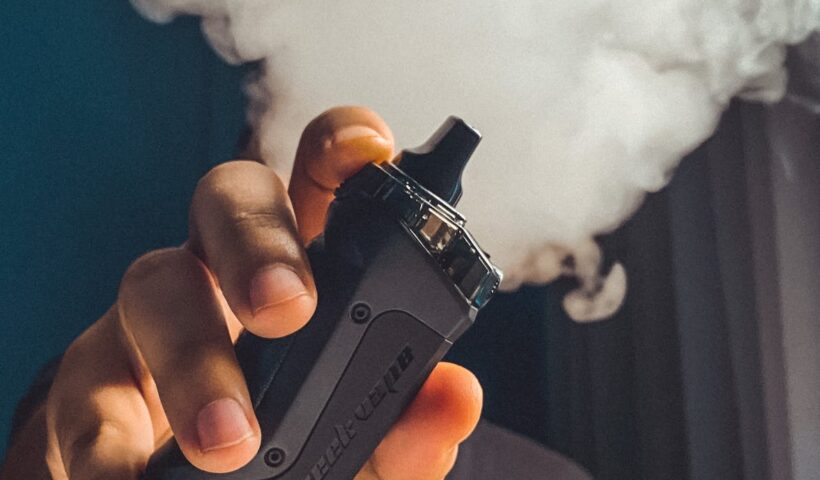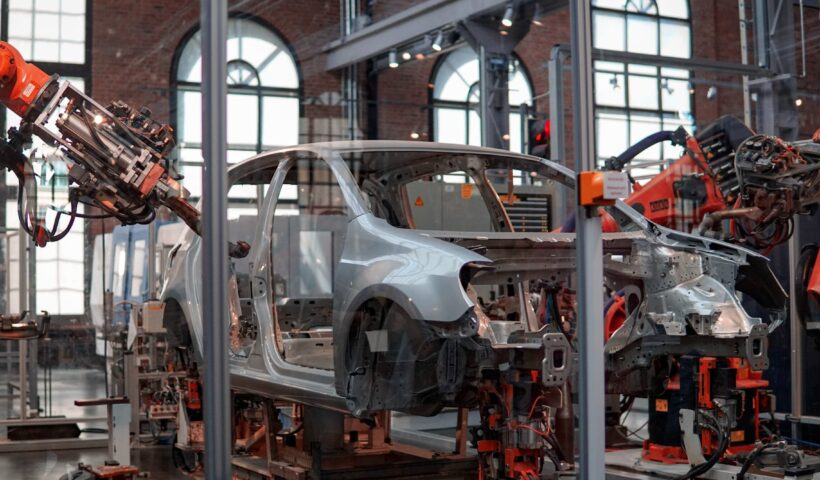HIV and AIDS have devastated the lives of millions of people worldwide. Antiretroviral therapy (ART) has completely transformed the reality of those impacted by HIV and AIDS, turning a death sentence into a much longer and healthier life. However, heavy pill burdens, drug resistance, and a lack of equity in current treatment make ART unethical as a long-term, permanent solution. It is up to biomedical engineers to find an ethical way to treat or cure the millions of people impacted by this virus. Genetically engineering humans (GEH) has shown great promise in improving treatment and finding a cure for HIV. If the engineers making these edits follow very thorough and specific guidelines, genetic engineering can be an ethical alternative to ART.
View More To GEH or Not to GEHAuthor: Janessi Diaz
Vapes Harm More Than Just Their Users
For anyone who has been thinking about quitting vaping, here is some inspiration. Vapes are not just bad for those who use them, they are incredibly harmful to those who have to make them. Vapes require a lithium-ion battery which is made with cobalt. The demand for cobalt has created treacherous and inhumane conditions for miners in Congo where the mineral is present in great abundance.
View More Vapes Harm More Than Just Their UsersElectric Vehicles May Be Stalling a UAW Deal
Members of the United Automobile Workers (UAW) union have been striking for nearly 3 weeks. As 25,000 Ford, General Motors, and Stellantis (formally Chrysler) employees walk the picket lines, the UAW is busy negotiating wages, job security, and pensions. While automakers feel that workers are asking for too much amidst the companies’ pricey transitions to EV production, EV production is what the UAW believes justifies some of their demands.
View More Electric Vehicles May Be Stalling a UAW DealMcFlurries Aid in the Fight for the Right to Repair
McDonald’s is notorious for their broken McFlurry machines, though the reason behind their malfunctioning is surprising. The manufacturers of these machines have forbidden McDonald’s from outsourcing repairs, but purposely make their machines fragile because they make millions off of fixing them. This highlights a greater issue in the engineering community: the fight for the right to repair. Consumers should not be forced to turn to original manufacturers to repair their products. Due to its high-profile nature, McFlurry machines may finally push Congress to pass the bill that would secure this right once and for all.
View More McFlurries Aid in the Fight for the Right to RepairEngineering Cleats Just for Women
The FIFA Women’s World Cup kicked off earlier this month, but many household names are missing from the pitch. Many players have been ruled out due to serious knee injuries. Experts say ACL injuries may plague female soccer players frequently due to ineffective footwear. Historically, women’s soccer cleats have been designed for men and then re-dressed to appeal to women. Recently, footwear engineers have come together to remedy this issue; they have finally begun designing cleats for female athletes.
View More Engineering Cleats Just for Women3D Printing: Revolutionizing the Making of Prosthetics
3D printing has made significant advancements in the medical field, particularly in the production of prostheses. The first 3D-printed prosthetic was developed in 2011 for a family that could not afford a prosthetic. Though the high cost of conventional prosthetics remains a significant barrier for many individuals, innovations in 3D printing offer more affordable alternatives. A functional prosthetic has recently been created with a price tag of just over $25, proving that prosthetics can become more accessible.
View More 3D Printing: Revolutionizing the Making of ProstheticsStudy Announces Use of CAR T-Cell Therapy Against Solid Tumors
CAR T-cell therapy, a revolutionary treatment for blood cancers, genetically modifies T-cells using CRISPR to replace their receptors with specialized ones called CARs. These CAR T-cells target antigens on cancerous blood cells, triggering an immune response that enables the patient’s body to destroy cancer cells. Additionally, CRISPR is used to deactivate genes that hinder the therapy’s efficacy. However, CAR T-cell therapy has struggled to target solid tumors due to their heterogeneity. Recent research from MIT’s Koch Institute introduces a promising solution using amphile fluorescein isothiocyanate tagging (amph-FITC). By injecting tumors with amph-FITC tags and treating them with FITC-specific CAR T-cells, researchers achieved successful tagging and destruction of cancerous cells while minimizing impact on healthy tissue. This breakthrough, although not yet tested on humans, holds potential to effectively treat and cure various cancers if approved for clinical applications.
View More Study Announces Use of CAR T-Cell Therapy Against Solid TumorsCiao-GPT
In today’s world we are surrounded by the myriad applications of artificial intelligence (AI). Though it is capable of some incredible things, it can also be very dangerous without regulation. Leading AI developers have published an open letter warning against the continued development of powerful AI, but will the world heed this warning?
View More Ciao-GPT







